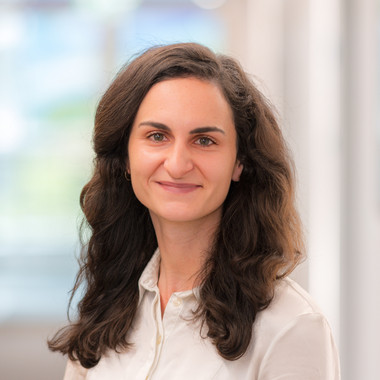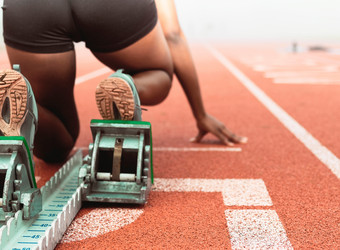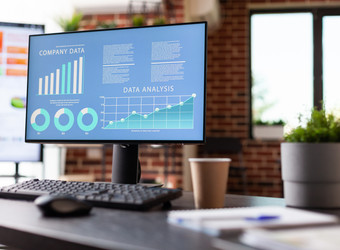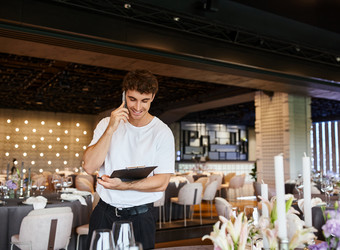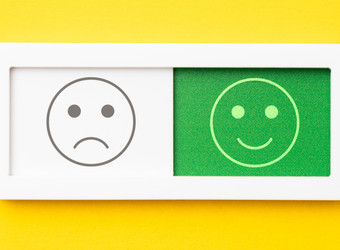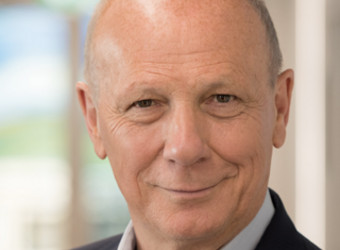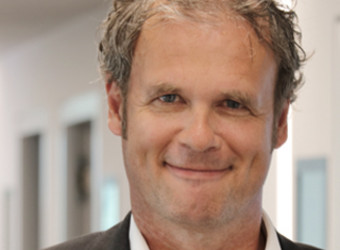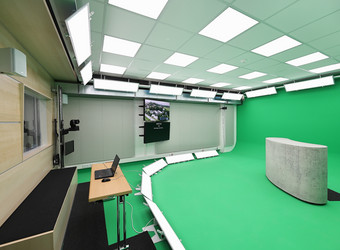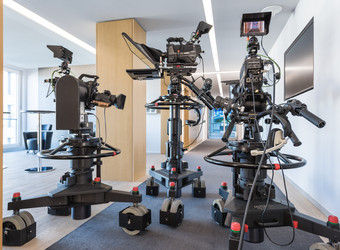Empowering people in what makes them special
Judith Brenneis talks about her path to becoming a trainer and the importance of authenticity.
Judith Brenneis is a presenter and trainer, as well as a health expert. The former heptathlete says of herself: "I take hurdles athletically." She spoke about her career and coaching approach in an interview with mbw editor Janina Singer.
Janina Singer: Judith, you always glow. It looks like you really love what you do. Is that true?
Judith Brenneis: And how! I glow when I'm in balance. And I'm in balance when I work with other people, when I make them shine and radiate, and when I can convey my passion for the stage and for communication.
You are a trained physiotherapist and health scientist and also work in the field of corporate health management. Does this interest in health topics stem from the fact that you were a heptathlete in your youth?
Yes, exactly. That's actually what prompted me to train as a physiotherapist, because as a heptathlete in my prime year, I destroyed my knee a week before the German Championships. Everything changed from one moment to the next, and I was made fit again by physiotherapists. I was so fascinated by that that I thought this was the job for me. But it wasn't. I went through with it anyway, but I realized I prefer working with people in a preventative way.
But that injury ended your career as an athlete, didn't it?
Yes, ultimately. Of course, you try to reconnect. But your body's memory is so overwhelmingly strong, and the serious injury happened at the moment of the throw, when the full weight has to be on your left leg. I could never go into it with the same intensity again. I always took the weight off my leg and pulled it away. And then, of course, you can't perform at your full potential. That meant, unfortunately, that the overarching goal of making it big was already dead.
You're now a moderator and trainer with a very broad portfolio. Communication, presentation, and team building, for example. How did you get into this coaching role?
After training as a physiotherapist, I studied health sciences, but was already working as a physiotherapist alongside my studies. And I had a great professor who had projects at DaimlerChrysler. So I became a trainer for ergonomics there. I quickly realized that I especially enjoyed working with groups, that I could inspire people, and that, as a visual person, I had a clear view of everything.
What skills and beliefs can you bring from your experiences back then and also from the end of your career into your work today?
I'm realizing more and more that, as a heptathlete in my youth, I was very, very focused. In the heptathlon, you always start with the hurdles. That was my specialty. Of course, you also lose. Or things don't go the way you expected. Then you have to shake off what didn't go well and look forward again. Fully solution-focused and with full power, moving on to the next discipline with full force. That helps me in my everyday life, even as a presenter. Unforeseen things always happen, really always. And I say, because I was also a hurdler: I take hurdles very athletically. These days, I'd even go so far as to say I even enjoy them.
When it comes to coaching, you say you pursue a specific approach that strays somewhat from systemic coaching. You want to help people become more visible. What exactly do you mean by that?
Yes, exactly! My foundation is systemic coaching training. But it's particularly important to me to empower people in what truly distinguishes them. And authenticity is paramount. If I become visible, please don't take on any role. People sense that; I'm absolutely convinced of that. In today's world, you score points by playing things that are real, that aren't fictional, but that reveal what makes me tick, who I am. And then either it's a good fit for potential clients or it isn't. And that's why my big goal is to see: Who's sitting in front of me? What type of person are they? And then gently pull these people out of their comfort zone.
How do you do that? Recognizing what a person is really like?
First, I listen a lot. I ask questions and perceive the person I'm talking to through all my senses. Visually, through language, through body language. And I really, really like to follow up.
But I imagine it's a bit exhausting and maybe even uncomfortable, being watched and read up on all the time. How do you manage to make people feel comfortable with you anyway?
Well, I'm always told that I don't find it unpleasant at all. And I don't stare at you! But I do question a lot of things and take notes and then follow up. All in an appreciative and respectful way.
But it can still be pretty tough, right? When you get a reflection of how you come across to others and realize that it doesn't correspond to how you actually thought you came across?
Yes, you're absolutely right. Especially in camera training, the mirror is held up extremely quickly, and I don't have to say much at first. But then we work through it step by step, building on it. I'm very strengths-oriented. I don't want to point out weaknesses. We're very deficit-oriented in Germany.
You're also working on the topic of joint generations. Do you notice in your coaching that you have to or can deal with younger people differently than with slightly older people?
Absolutely. We have to speak a completely different language with young people. I see myself as a bridge builder between the many, many generations we currently have. For example, I also work with trainers who are still baby boomers. Worlds often collide in companies because they no longer speak the same language, their values have changed, and I can only say again and again: Look, if we were the young people now, we would be like that too! I always think we need to reflect, not judge.



